In anticipation of the forthcoming launch of the remastered ‘One to One’ live performance audio, Atwood Journal’s Aidan Moyer revisits an April 2025 interview with Sam Rice-Edwards, the co-director of this 12 months’s documentary masking the lead-up to the live shows, Yoko Ono and John Lennon’s real-time activism, and the potential for extra archival releases from this era.
“Think about” – John & Yoko, Plastic Ono Band (reside)
“Wherever You Are, You Are Right here.”
Conceived as a refuge from an ex-Beatle’s immigration woes, Yoko Ono and John Lennon based the amorphous micronation Nutopia on April 2nd, 1973. Their screed decreed “NUTOPIA has no land, no boundaries, no passports, solely folks!”
On August 12, 2025, Nutopia arose once more, because the Lennon property’s electronic mail blast addressed the Residents of Nutopia. Those that heeded the decision have been handled to a bespoke digital live performance ticket modeled after the 1972 originals.
In celebration of Girls’s Historical past Month, Atwood Journal’s Aidan Moyer took an advance have a look at One to One: John and Yoko, a brand new documentary spotlighting the Ono-Lennons and their 18 month residence in The Village circa 1972.
Upon publication, the chance arose to talk with Sam Rice-Edwards, the co-director of One to One. In the middle of this dialog, Edwards toggles between the musical and visible backdrops of the movie, the notion of John and Yoko unguarded, and hanging parallels between the activism of 1971 and 2025. Our dialog is edited barely for readability.
A CONVERSATION WITH SAM RICE-EDWARDS
Atwood Journal: Thanks a lot for chatting! So that you’re in New York for press proper now?
Sam Rice-Edwards: Yeah, precisely. I’m somewhat bit jet lagged, truly, simply arrived final evening however hanging in there.
I traveled to London for 5 days final summer season and was not totally awake all the time!
Sam Rice-Edwards: Yeah, it’s laborious! The place are you primarily based?
So proper now I am in Philadelphia, which was good as a result of they simply held the press screening final Thursday.I used to be in a position to Amtrak there in a short time. I’ve now seen ‘One to One’ 3 times as a result of I acquired the press screener, watched it once more with a bandmate of mine, and my girlfriend and I simply went to the New York press premiere.
Sam Rice-Edwards: Ooh, wonderful.
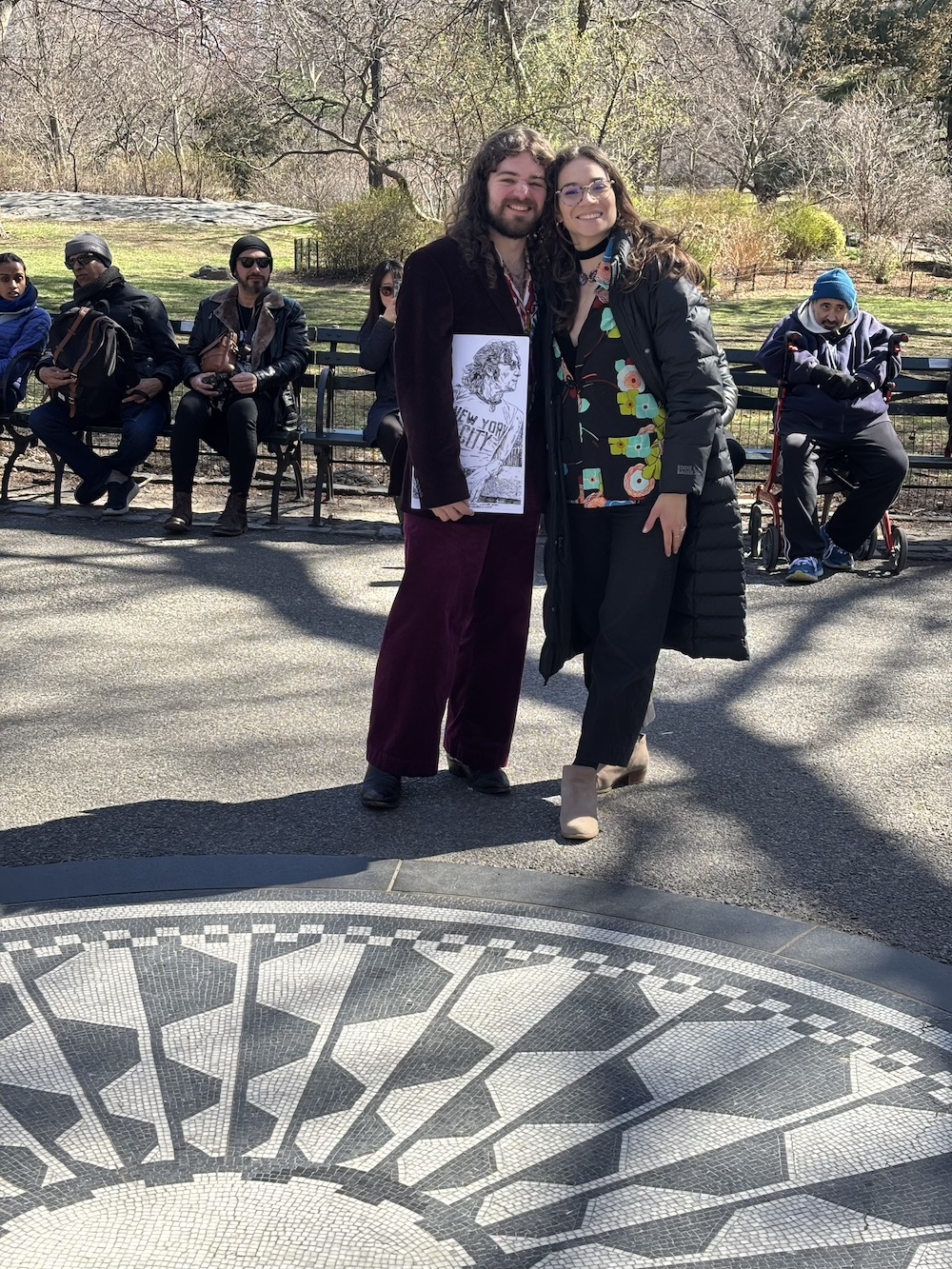
[An action figure of John Lennon falls over in the Zoom background].
That was the Ghost of John.
Sam Rice-Edwards: Oh, have a look at that, there you go! He’s simply so impressed that you simply’ve seen the movie so many instances. That’s what it was.
My first query is an modifying query. There’s a lot narrative heft to every thing that is occurring in Vietnam with Nixon, we see flashes of Angela Davis and stuff, however within the edit there’s lots of humor. The second that I laughed out loud is when Lennon’s at a rally and says, ‘we have to carry the machines dwelling.’ After which we reduce to an advert for a washer. Lennon’s operating by means of “Hound Canine” and we reduce to Nixon tickling the ivories. Yoko stated she was upgraded ‘from being a bitch to being a witch.’ How did you toe that line in protecting the narrative grounded, however preserving the humor that was fairly quintessential to the Ono Lennons?
Sam Rice-Edwards: Yeah. I believe you stated it there, one thing that we actually needed to specific, actually, for 2 causes. As a result of one is, as you simply stated, they have been so playful as a pair, and as people as nicely. And so humor and playfulness and creativeness was an enormous a part of who and what Yoko is, and who they have been as a pair. But additionally, we have been making an attempt to current life in 1972, and the fact of life is that you’ve one thing very severe subsequent to one thing very humorous. In life, we stumble upon all these various things and truly if issues are one tone, it truly turns into much less actual in a means and a bit monotonous.So we have been actually making an attempt to combine issues up, and by way of how we discovered that line, it’s actually only a sort of ‘suck and see’ sort of state of affairs the place you strive stuff out and you are feeling like, “oh, that goes a bit too far”, or “that comes throughout as actually disrespectful,” so it’s simply actually feeling your means ahead. And never shying away from issues that shock, as a result of truly generally you do need issues to be stunning or very stunning. Typically whenever you really feel that, you’re like, “oh, let’s go along with that. Let’s make a courageous determination right here”.
Yeah. The second with George Wallace, the third time I nonetheless jumped somewhat bit.
I cherished the framing of flicking by means of the tv channels! I believe there’s a sure tendency to mythologize Lennon and Ono. They have been sofa potatoes! They cherished channel browsing. And what I actually appreciated is how naive Lennon was allowed to look right here. There’s audio the place Allen Klein is on the cellphone and John’s saying “why cannot I sing a track a few jail riot”? And then you definitely hear the breath being held over the cellphone. “Oh, certain. I am going to write a track for the IRA,” identical to McCartney did across the identical time. There was that very gung-ho “Let’s dive proper in after which fear concerning the penalties later.” Have been there any mandates about audio that may have been somewhat bit too ‘sticky’? And what was the intent with permitting John particularly to look so wide-eyed and so naive with among the causes he was diving into in ‘72?
Sam Rice-Edwards: By way of the Lennon property, they actually stood again. It is a movie made by Kim McDonald and the producers, and Peter Wesley and Mercury Studios. They have been clearly concerned, however they very a lot revered Kevin as a filmmaker and allowed him to do what all of us needed to do to make movie. So that they have been nice in that respect and in plenty of respects they have been very useful. And I believe by way of Lennon coming throughout as type of wide-eyed, we needed this movie to be an opportunity for folks to essentially get to know John and Yoko in a means that they’re after they’re away from public view, and to spend time with them. [John] was somebody who was extraordinarily curious and adventurous, all the time making an attempt new issues. And there was a facet [where he] allowed himself to dive into issues, and I believe to have that you must have a component of naivety. And I believe within the movie, what we have been making an attempt to point out is that they got here to New York escaping the UK and the type of vilification of Yoko and the breakup of the Beatles. They fell right into a world that they cherished and have been very a lot influenced by the folks round them, Jerry Rubin and that type of gang had a way that they might change the world. They turned fairly political, John, particularly, and thru the course of the movie, they got here to comprehend “perhaps we are able to’t change the world on an enormous scale. We are able to perhaps do some smaller issues, some extra human issues,” such because the live performance.
On the inverse of how Lennon walks again among the “Black Panthers, White Panthers and all that jazz,” there’s that picture of Yoko within the bag doing efficiency artwork items, et cetera, this extra mercurial spirit. And then you definitely hear her on the cellphone, extraordinarily tactful mitigating lots of enterprise stuff, mending fences. The pull quote for Atwood’s assessment, the ballot quote was Yoko’s, “Have you ever ever heard both of the three Beatles make a remark about me? It’s chauvinism.” And I would think about lots of child boomer readers won’t be thrilled that is the pull quote, however that is the one which caught out to me. Has Yoko seen this documentary?
Sam Rice-Edwards: I wish to suppose she has, I don’t truly know for certain. However she’s stepped again from coping with the Lennon property and Sean Lennon has actually stepped into that position. I want to suppose she has, however actually Sean was the one that we have been related to.
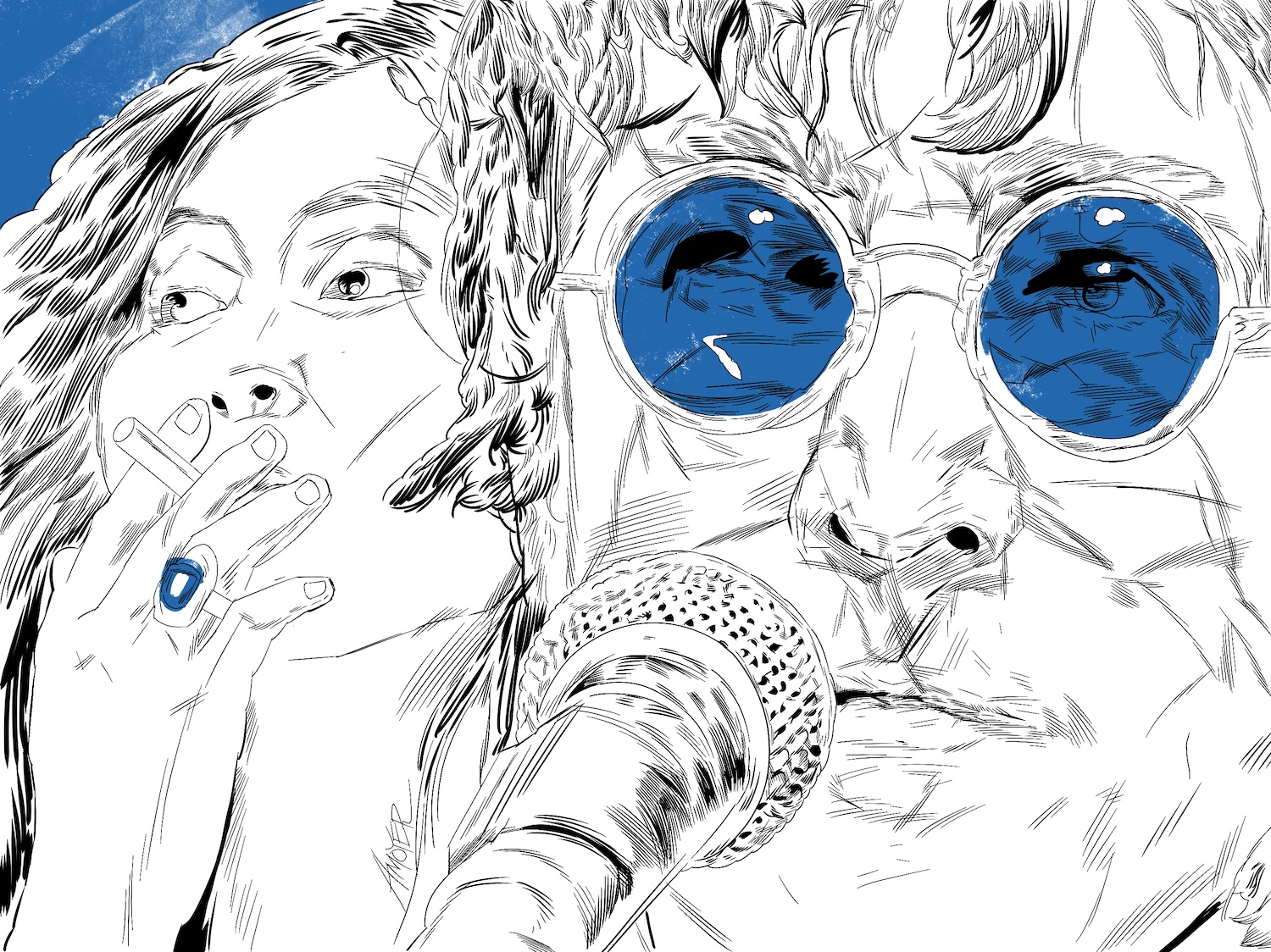
Great! It is a large job to contextualize two of the most important artists of the 20th Century and share their final title, and deal with the audio remixing and lots of PR, they’re enormous footwear to fill.
Sam Rice-Edwards: Yeah, Sean was nice, I’ve to say. He was very supportive of the movie.I used to be in a screening the place we performed it for him for the primary time, and it was truly fairly transferring watching it with him as a result of clearly it’s so extremely private for him. He did a improbable job with the audio. The live performance was wonderful, however there have been lots of issues in the best way it was recorded and shot and so forth. And so there was lots of work to be finished. And he actually purchased the sound to life
Did I see Paul Hicks’s title there as nicely within the audio combine?
Sam Rice-Edwards: Presumably, I’m undecided. Paul Hicks, what was he doing. with Sean, you imply?
I believe it was one thing with the audio. I do know that Dhani Harrison works rather a lot with Paul Hicks, and I flagged the title within the credit.
Sam Rice-Edwards: Sure.
Yeah, it is such an apparent factor to say, however what a voice. Lennon simply had that like pure, ripping rock vocal. “Instantaneous Karma” has not been outta my head, the Wurlitzer piano has simply been on loop. Is there going to be an audio tie in a ‘Dwell in New York’ companion to the movie? Or is it, will the audio simply reside because the soundtrack?
Sam Rice-Edwards: Do you imply ‘will there be a launch of the live performance’? Sure. I believe sure, that there’ll truly be a launch of a live performance movie. However I dunno when that’s popping out. Clearly we haven’t acquired the entire live performance within the movie, the live performance is on the coronary heart of our movie nevertheless it’s not a ‘live performance movie’ as such. You go there and it’s an incredible cinematic expertise, I believe, to look at the movie since you actually, within the moments the place we delve into the live performance, you are feeling like you’re on the solely live performance that John did after leaving The Beatles, ever.And so it’s that have, however the movie that we made, hopefully, everybody feels is larger than a live performance movie in a means. It’s extra concerning the time and about John and Yoko, who they have been as folks and what was taking place in 1972 and the way that weirdly parallels to now. So I believe that could be a larger movie than simply the live performance.
(Be aware: A four-track EP for File Retailer Day was adopted by an August twelfth teaser for the ‘Residents of Nutopia’ that the live performance’s audio launch is forthcoming).
Oh, talking of parallels to now, what luck – not luck, obviously- however the live performance that the choir gave to Nixon the place they held up the ‘Cease The Killing’ banner. And what was it, 4 or 5 weeks in the past {that a} choir went to the White Home and sang the track from Les Miserables (“Do You Hear The Folks Sing?”) That’s so eerie, how pertinent the entire “Free the Folks, Cease The Killing” is, it is about ‘Nam, nevertheless it’s additionally about now.
Sam Rice-Edwards: It’s distressing. It was a really unusual factor as a result of, instantly. we noticed the parallels between then and now. I say now, a 12 months in the past, a 12 months and a half in the past, or perhaps somewhat longer, we may see the type of fractures in society have been related. The polarization of proper and left and the identical points have been on the fore, gender politics, race, setting. So, we may see the parallel immediately, and it’s one thing that we needed to replicate, however we didn’t actually, it solely turned clear how massively parallel it was changing into as we have been modifying the movie. And after the movie was completed, as Nixon and George Wallace in some way represented Donald Trump. After which, there was an assassination try, and the parallels went on and on. Nixon’s landslide victory and so forth. So, it turned fairly unusual, truly.
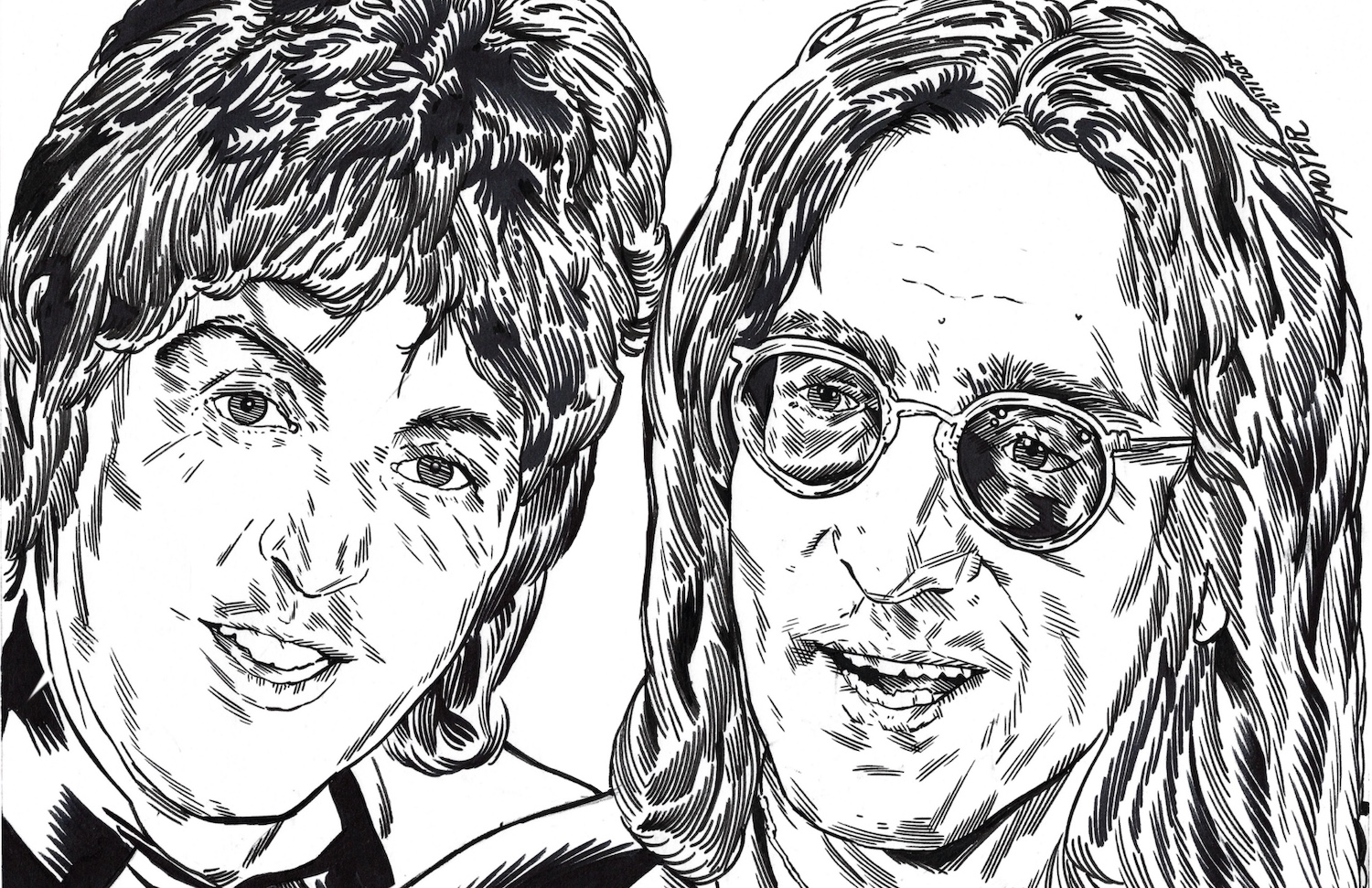
So, a timeline query: Final summer season, there was a field set that was speculated to be for Thoughts Video games, however there was Some Time in New York Metropolis materials folded into it. And there is a letter from the time interval of this movie when Lennon was speaking about, “oh, we are able to get Dylan for a tour, and he met with McCartney at Financial institution Avenue.” There is a letter from across the time they wrote the songs about Eire inviting Wings to affix the one-to-one live performance. Timeline sensible, was that materials one thing you have been conscious of or did that come to gentle after modifying was already underway?
Sam Rice-Edwards: I believe, I can’t keep in mind particularly, however within the type of recess of my thoughts, it rings a bell, and I really feel like we knew about that on the time. The factor is that, there are lots of different information on the market and letters and paperwork, however actually the movie that we got down to make was a visible cinematic movie, and we needed it to essentially give folks a time capsule and a slice of John and Yoko at the moment with out delving into info and displaying stills of letters and that type of factor. What now we have is all movie or video of the time. If there have been issues that we knew, however we didn’t have any materials that we may use, then actually we couldn’t get them into the movie. They have been fascinating to know nevertheless it didn’t work within the format of the movie.
Completely. By way of utilizing all accessible audio and video, there are some fantastic cameos. I knew that Stevie Marvel had been on the live performance, however the best way he simply slides into body and completely rips “Give Peace a Likelihood” is fantastic. I wasn’t shocked per se, nevertheless it was fascinating to listen to Could Pang’s voice. She put out her personal doc final 12 months. Then, Phil Spector pops into body fairly a bit… and Alan Ginsberg has his share of retroactive controversies as nicely. Was there any thought paid to how any of the gamers look on reflection, or was all of it a diary of what was taking place within the second, and also you solid to 1 facet ‘what was to be’?
Sam Rice-Edwards: Yeah, I believe it’s a extremely good query and it’s one thing that we spoke about rather a lot. It’s not a movie that appears on reflection at what these characters did after, or what got here to gentle and that’s undoubtedly crucial stuff to speak about and course of, however that’s not the movie that we have been making truly. We have been making a movie that was within the second, on the time. And what folks knew then. Even to the purpose the place we didn’t title folks, folks popped up on display screen. Angela Davis, she’s simply not titled in any respect. If know who she is, then you definitely get it. When you don’t know who she is, you simply get a sense for that type of factor taking place at the moment. We have been making an attempt to create the world that John and Yoko noticed at the moment, they usually didn’t see title titles, they didn’t know any of the stuff that we all know perhaps now about Ginsberg or whoever, on reflection. So, we have been actually making an attempt to color an image of that second.
In step with that, the top of the principle narrative pans out from the TV in Bang Avenue and sirens go by. And Jim Kelner alludes to, “We’re not making an attempt to get ourselves shot right here.”
Sam Rice-Edwards: Yeah.
Is despite the fact that it is a narrative time capsule, have been the sirens deliberate and an allusion to the place the story is heading? I am interested by that alternative, the sirens on the window on the finish.
Sam Rice-Edwards: Yeah, it’s a type of movie you could select what you need from it, not in a foul means, in a great way. It’s all there and you can also make the connections and everybody will make totally different connections. We determined very a lot to be within the timeframe of them at Financial institution Avenue and that, that felt like a pure interval for the movie to be in. And we didn’t need to rehash stuff about John’s deaths, which has been so nicely documented in lots of movies. However that’s to not say that it’s not alluded to in ways in which you talked about, the sirens not so instantly, however clearly Jim Kelner had a type of foreboding feeling with that dialog that they’d. So it’s in there in essence, nevertheless it’s not a basic a part of the narrative of the time, of the movie.
“Freda Peeple,” which performs over the credit, that is the one choice that postdates the narrative, that is a observe from ‘73. After which every thing else is Someday in New York Metropolis. I could possibly be flawed there, but-
Sam Rice-Edwards: It’s both “Some Time in New York Metropolis” or the live performance. As a result of clearly lots of the songs have been [older], “Come Collectively” and so forth. However by way of after the time interval [of the narrative], I believe that he wrote that track within the time interval, nevertheless it got here out later. And in addition the track simply earlier than it was simply one thing I forgot the title of [“Mind Games”], so these two on the finish, they arrive out after our time interval, however they have been written throughout the time interval. So we felt that they have been apt for the ending. And in addition they’d the precise type of ‘feeling’ and, “Freda Peeple” in a means was like trying again on the movie and summarizing John and Yoko’s feeling of what they have been making an attempt to say by means of the movie.
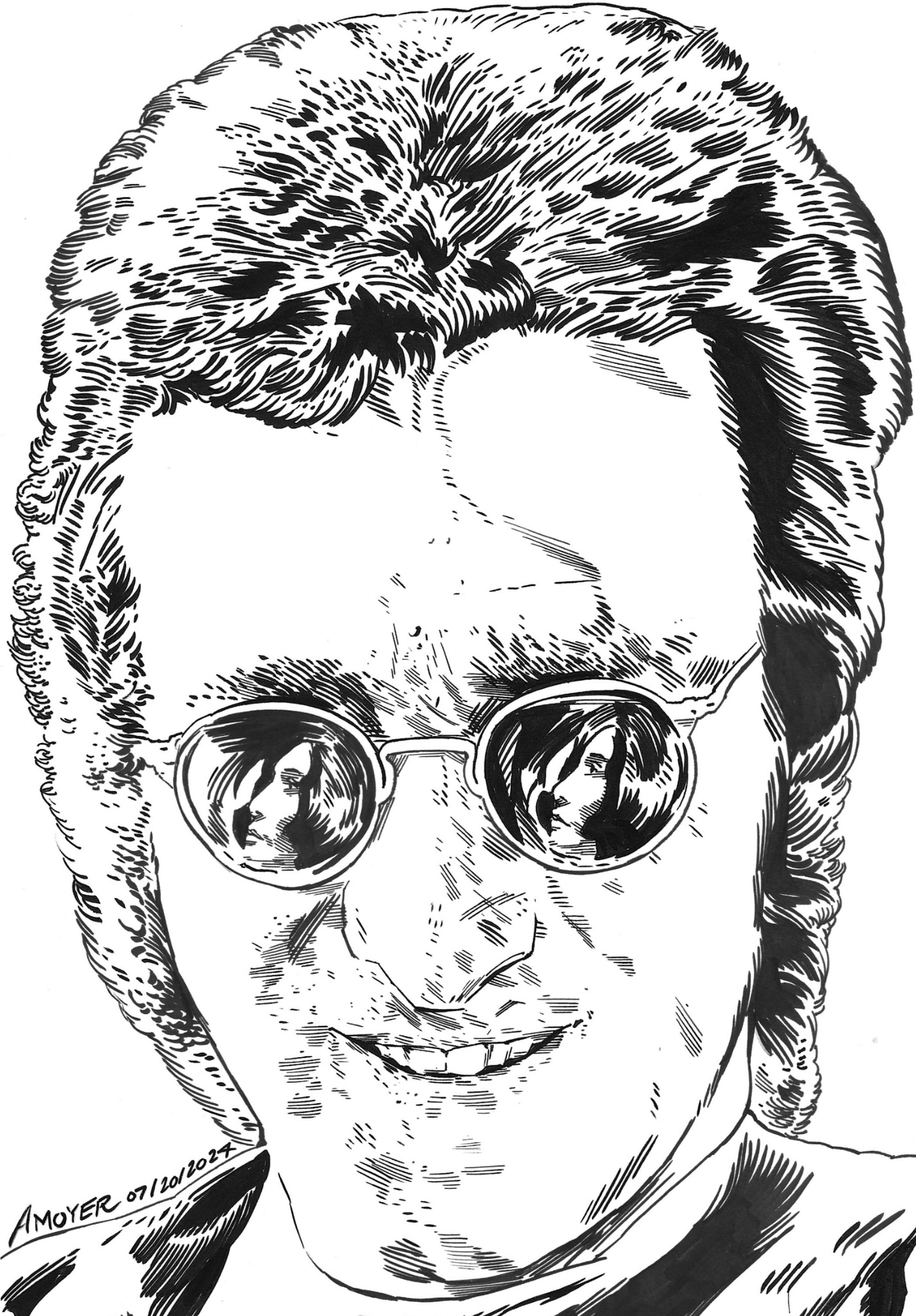
“Freda Peeple,” by coincidence, might be my favourite solo Lennon track. I used to be very completely happy that made it into the credit.
Sam Rice-Edwards: It’s humorous that lots of people love that observe, I imply, it’s clearly a extremely well-known observe, nevertheless it’s not one which’s you consider immediately whenever you say, “What’s your favourite. Lennon solo observe?” However we saved on assembly individuals who have been like, “I really like that observe.” So that you’ve acquired some mates on the market!
Sure, wonderful! Being conscious of time, that is my final query. I jumped out of my chair once I noticed among the dwelling video footage within the doc. As nice because the live performance was, the shaky seventies video digital camera of the Lennons in Cambridge on the feminist convention, and contained in the Dakota, it’s fairly jaw-dropping. Is there extra of that footage, and will that be a challenge unto itself?
Sam Rice-Edwards: Clearly the stuff that, the Portapak stuff, that’s the format that the black and white stuff in Cambridge and on the feminist convention was shot on.It’s this outdated format referred to as Portapak. There’s clearly extra tapes of that, we had lots of that footage, however truly it’s all the identical stuff with them driving round and so forth. So actually I believe, we instructed the story and what we felt was one of the best ways from that footage.
It isn’t actually a query for me. I believe it’s a query [where] that you must pay money for the Lennon Basis and see what else they’ve acquired within the vaults. However I don’t know, I believe all the very best stuff that we had is within the movie. Of that point and, perhaps that there’s not that a lot stuff that really exists of [the Ono-Lennons] at the moment. We have been actually happy to have discovered all of the stuff that we discovered that’s within the movie and that, and it feels very wealthy. There’s solely a finite quantity. I’m sorry. I really feel like I’ve given you a extremely dangerous reply there.
No, in no way!
Sam Rice-Edwards: So one thing that occurred two or three months into the edit was any individual from the Lennon property referred to as up man referred to as Simon Hilton, who had been serving to us rather a lot. And he had been out in New York on the Lennon Archive. He’d been strolling across the archive and located this field on a shelf, not labeled. And he regarded in it and located these tapes. Anyway, he gave us a name and he stated “I believe we’ve acquired one thing you could be concerned with.” And it turned out that it was all of the cellphone conversations they’d simply been sitting on, all this time for the final 40 or so years 50 years! And nobody had actually checked out them. In order that was a extremely sort of magical second. As soon as we obtained these, we immediately knew that they have been one thing very particular. ‘Trigger you by no means hear John and Yoko speaking like that, the place they actually don’t really feel like they’re being listened to, they’re not that out of the general public eye. It was immediately very revealing about who they’re. It was an incredible second to obtain that archive.
That is stunning. Born in paranoia, however was one thing narrative and delightful all these years later!
Sam Rice-Edwards: Precisely. That’s a really John and Yoko factor to do, isn’t it?To show paranoia into one thing extra constructive.
“Don’t despair, paranoia’s in all places.” Thanks a lot for taking the time to speak concerning the doc, I’ll in all probability see it a fourth and fifth time!
Sam Rice-Edwards: Look, thanks a lot. And yeah, it’s actually nice to listen to that you simply loved the movie. Thanks, take care!
— —
One to One is now streaming on Apple TV, Amazon Prime Video, Fandango at Dwelling and YouTube.
— —
— — — —
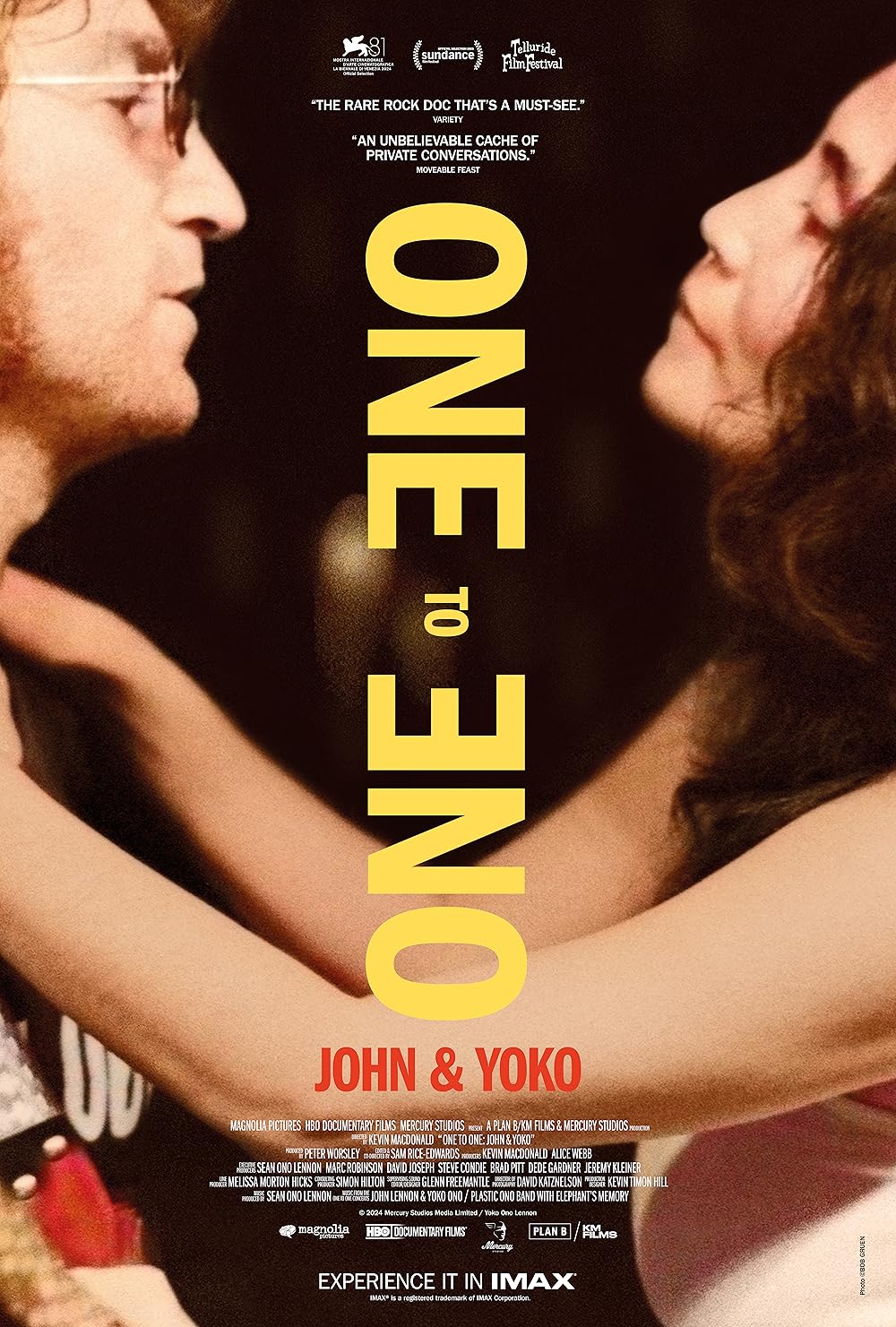
Observe John Lennon on
Fb, 𝕏, TikTok, Instagram
Connect with Yoko Ono on
Fb, 𝕏, Instagram
Uncover new music on Atwood Journal
© Aidan Moyer
:: Stream John Lennon ::

